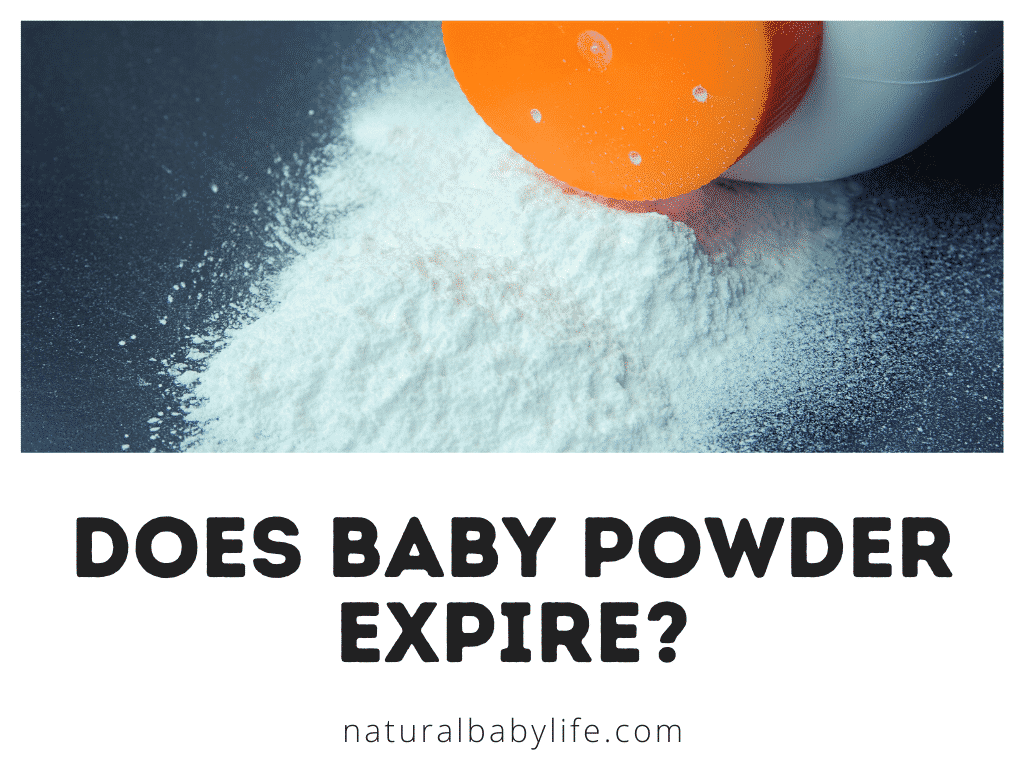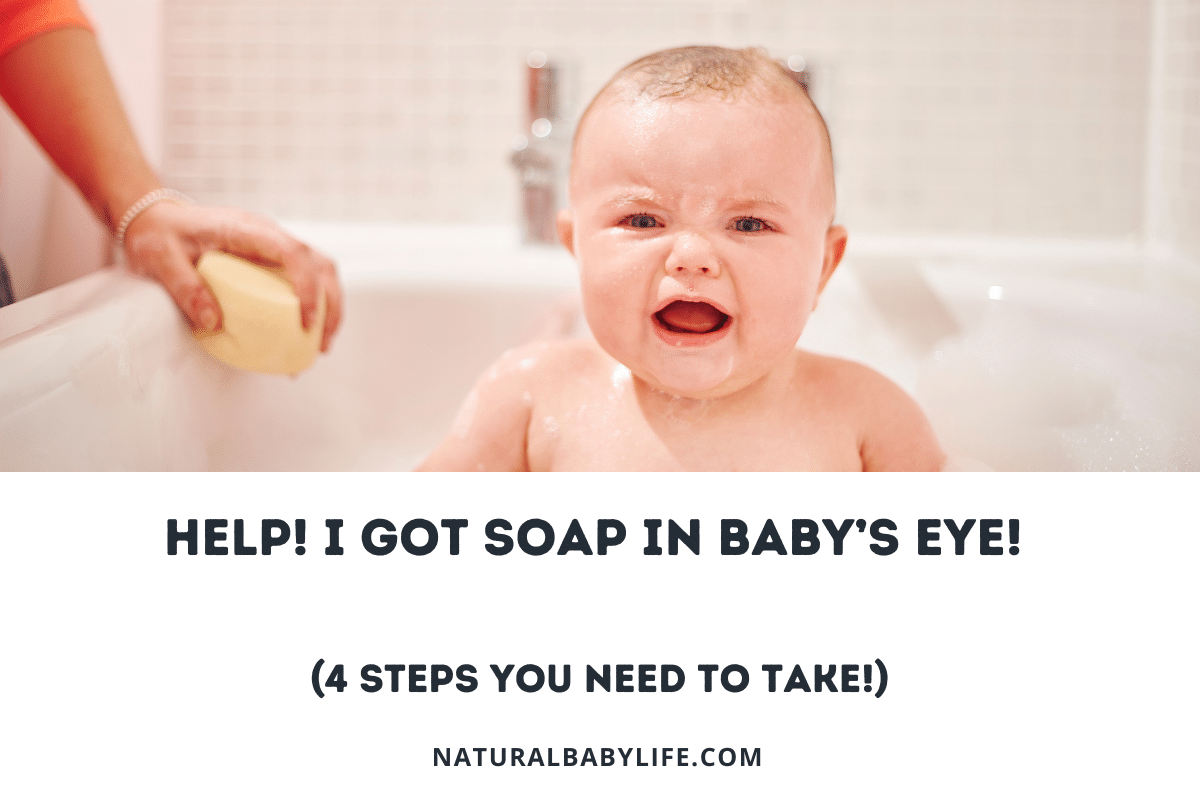Although spitting up is common among healthy babies, it is a frequent concern for parents. Many wonder how much is too much and if it can dangerous. Is it normal for your baby to spit up after laying down?
Young babies have immature digestive systems, which make them prone to spitting up. Laying a baby down after feeding can slow their digestion and exacerbate symptoms that lead to spit-ups. Spitting up while laying down is usually harmless and is not considered a potential cause of SIDS, although it may be a sign of GERD or an allergic reaction.
Continue reading to learn more about what causes babies to spit up, when to worry, and how to prevent it.
Table of Contents
Why does my baby spit up when laying down?
Spitting up, also known as gastroesophageal reflux, occurs when a baby’s stomach contents pass back into the esophagus. According to the Mayo Clinic, this occurs daily in up to half of all young babies ages 0-3 months. Though excessive spitting up can be tied to health complications, it is rarely a sign of illness or poor health.
Spitting up is typically due to babies’ immature digestive systems, specifically, the lower esophageal sphincter (LES). The LES is the ring of muscle between the esophagus and stomach. A mature LES only opens when an individual swallows, keeping the stomach contents in place. In babies, however, these muscles may relax at inappropriate times, allowing breast milk or formula to make its way back up the esophagus, causing them to spit up.
Many parents find that their baby spits up when they are laying down. Though laying down is not the root cause of their spit-ups, it prevents gravity from assisting in keeping their milk or formula down, making reflux more likely.
Though spit-ups are typically no cause for concern, excessive spitting up may be due to the following:
- Overfeeding
- Insufficient burping
- Tongue-tie or poor latching
- Gastroesophageal Reflux Disease (GERD)
- Food Sensitivity or allergy
Overfeeding
When overfed, your baby may be unable to digest their full meal; this can lead to more frequent spit-ups.
Signs that you are overfeeding your baby include:
- Spitting up often and in large amounts
- Having more wet diapers than expected
- Experiencing diarrhea
- Being fussy after feeding
- Gaining more weight than expected
Overfeeding is more common in bottle-fed babies because bottles have quicker flow rates and require less effort from babies. Additionally, babies may be encouraged to finish their bottles instead of stopping when they are done.
Insufficient burping
As a baby feeds, they swallow air. This air can accumulate in the stomach, causing uncomfortable gas bubbles that can cause reflux.
Burping your baby frequently can relieve this build-up of gas.
Here are some signs that you may not be burping your baby sufficiently:
- Spitting up frequently
- Stomach appears bloated
- Lifting their legs
- Arching their back
- Inexplicably fussiness
A tongue-tie or poor latch
Tongue-ties occur when a baby’s frenulum, a membrane underneath the tongue, impedes the movement of the tongue.
Tongue-ties can cause an inability to latch properly during nursing. It can also prevent them from bottle-feeding efficiently. Babies with tongue-ties swallow more air during feeding, which leads to more frequent spit-ups.
Poor latching can also occur because of bad positioning and attachment. Though nursing is instinctive for babies, there can be a learning curve for both the mother and child. A shallow latch can be painful for the mother and prevent the baby from draining the breast effectively. Like the tongue-tie, this can lead to more air being swallowed, causing reflux.
GERD
Most babies experience reflux due to their immature digestive tracts; however, it does not usually negatively impact their health and development. These babies are often referred to as “happy spitters.”
Reflux that causes complications is referred to as gastroesophageal reflux disease (GERD).
Here are some differences between “happy spitters” and babies with GERD:
"Happy Spitters" vs. Babies with GERD
| "Happy Spitters" | Babies with GERD |
|---|---|
| Experience effortless spit-ups that do not cause distress | Experiences forceful spit-ups or vomiting, which can be painful |
| Normal appetite | Irritable during feeding May refuse to eat |
| Typically experiences dry burps or hiccups | Frequently spit ups when they burp or hiccup |
| Gains weight normally | Weight loss or inability to gain weight |
| Does not cough or have trouble breathing | Coughs frequently Exhibits signs of respiratory issues |
| Spit-ups do not cause gagging or choking | Spit-ups (and vomiting) may cause them to gag or choke |
| Does not exhibit discomfort while feeding | Arches their back in discomfort while or after feeding |
| Sleeps regularly | Sleep is disrupted by reflux |
Food intolerances or allergy
Food intolerances and allergies can cause increased reflux in babies. If a baby experiences an allergic reaction or immune response to their mother’s breast milk, their esophagus may become inflamed, swollen, and irritated, making it difficult to swallow.
Babies with severe reflux due to food allergies may be diagnosed with Eosinophilic esophagitis (EoE), a disease characterized by chronic inflammation of the esophagus.
Symptoms of EoE include:
- Frequent spit-ups
- Vomiting
- Nausea
- Abdominal pain
- Gagging and choking
- Signs of pain such as the arching of the back
- Refusal to eat
- Difficulty sleeping
Is it normal for a baby to spit up in sleep
Discovering your little one has to spit up in their crib can be alarming, but it’s likely nothing to be worried about.
Spitting up during sleep is especially common for newborns. Much of their day is comprised of feeding and sleeping; oftentimes one after the other.
Though SIDS experts do not view this as a potential cause for SIDS, many parents want to prevent spit-up episodes at night.
How do I stop my baby from spitting up at night?
Reflux can disrupt your baby’s already challenging sleep schedule, and it can be worrying for parents.
In some instances, making simple changes to your little one’s routine can prevent night spit-ups; however, babies with GERD may require additional treatment.
Here are some tips to help your keep your baby from spitting up after they are laid down:
- Hold your baby upright for at least 30 minutes following a feeding session. This will allow your baby’s meal to digest before they are laid down. Keep your baby upright allows gravity to aid with digestion.
- Offer smaller, more frequent meals during the evening. Parents may be tempted to offer their baby a big bottle or an extended feeding session at night to help them sleep. However, overfeeding your baby right before bed can lead to reflux, which can disrupt their sleep. Offering smaller, more frequent meals can prevent your baby from becoming too full.
- Avoid fast or heavy movements right after mealtime. Though rocking your baby may be part of your nighttime routine, doing so right after a feed may lead to reflux. Even changing your baby right after they eat can cause them to spit up.
- Burp your baby, even if they’ve fallen asleep while feeding. Most parents know it is important to burp their baby but don’t want to risk waking them if they’ve fallen asleep. This can be counter-productive because gas bubbles can cause reflux and discomfort.
When do babies stop spitting up when lying down
Spitting up typically peaks around two to four months, due to an increase in their milk or formula intake combined with their immature digestive systems.
At six months, a baby’s digestive system is more mature. They are learning to sit up and are beginning to eat solid foods. These milestones help to reduce spitting up episodes.
By the time a baby is one year old, spitting up will be infrequent or will have completely stopped.
What happens if my baby spits up laying down
Many parents worry that their baby may aspirate and choke on their spit-up while they are laying down.
Depending on the severity of your child’s reflux, your baby is likely to be perfectly fine; however, babies with GERD may experience more serious complications.
According to the National Institute of Child Health and Human Development (NIH), babies have a protective reflex that causes them to cough up or swallow spit up or vomit. Keeping your baby on their back during sleep helps to protect their airways.
Peachwood Pediatric explains that normal spitting up is not dangerous; however, babies with GERD may experience complications. Aspiration of spit up into the lungs can lead to pneumonia, and, though uncommon, breathing can be interrupted by choking or coughing.
How to stop baby from spitting up after laying down
Babies’ developing digestive systems make them susceptible to reflux; however, there are many things you can do to help prevent spit-ups.
Do not overfeed
Overfeeding is especially common in bottle-fed babies. As opposed to breastfeeding, bottles have a fast flow rate, which requires little sucking effort from babies.
Here are some tips to prevent overfeeding bottle-fed babies:
- Choose the appropriate nipple for your baby’s feeding level. Nipple flow rates correspond to the nipple’s hole size. Dr. Brown’s, for example, offers seven nipple sizes.
- Watch for cues that your baby is full. When your baby is full, they will take longer breaks between sucking. They may even fall asleep or turn away from their bottle.
- Don’t get stuck on the number of ounces. Your baby’s formula or milk intake will vary day-to-day, so avoid focusing too much on the exact number of ounces they “should” drink. As long as they are gaining weight and staying hydrated, following your baby’s hunger cues will help them to self-regulate.
- Do not add cereal or fruit juice to your baby’s bottle. Adding cereal or juice to your baby’s bottle may cause them to intake too many calories. Until they are four to six months of age, babies should exclusively be fed formula or breastmilk.
Burp your baby often
To help keep spit-ups at bay, burp your baby every 2 to 3 ounces or when you switch breasts.
Here are some burping methods:
- Hold your baby against your chest. With their chin over your shoulder, gently pat their back. Rocking may also assist with burping.
- Hold your baby sitting up in your lap or across your knees. Carefully rest their chin in your palm to support their neck and head. Gently pat their back.
- Lay your baby on their belly or across your lap. Keep their head supported (higher than their chest). Gently pat their back.
Correct tongue-tie or poor latch
Tongue ties can be treated by a procedure called tongue-tie division. In this procedure, the frenulum is cut, which allows the tongue to move more freely. This can improve or eliminate feeding complications that lead to reflux.
If you and your baby are struggling to get a good latch, here are some techniques and resources available to you:
- Listen to your baby’s hunger cues.
- Try to find the most comfortable position for your baby.
- Shape the breast, using the C-hold.
- Contact a lactation consultant or midwife for assistance.
- Supplement your baby’s diet with pumped milk or formula, if needed.
Recognize and treat GERD
GERD can have a large impact on your baby’s sleep and overall wellness. If you suspect that your baby has GERD, contact your pediatrician.
Depending on the severity, some doctors may suggest lifestyle changes, such as keeping your baby upright after feeds, medication, and even surgery.
Remove food allergens
If a baby’s reflux is due to an allergic response to their mother’s breast milk or their formula, they may exhibit other symptoms.
Signs of an allergic reaction to breastmilk or formula include:
- Diarrhea
- Abdominal pain
- Vomiting
- Edema
- Rash or hives
- Swelling of the lips, tongue, or mouth
- Wheezing or shortness of breath
- Eczema
- Low blood pressure
If you think your baby’s reflux is due to a food allergy, contact your pediatrician or allergist.

![Why Does My Baby Spit Up after Laying Down [Causes and Treatments]](https://naturalbabylife.com/wp-content/uploads/2021/05/baby-spits-up-after-laying-down_featured.png)








